Changing the World through Orphan Sunday

November 28, 2022
According to United Nations International Children’s Emergency Fund (UNICEF), there are 147 million orphans (0-17 years) globally, with 15.4 million of them losing one or both parents due to an AIDS-related cause. Millions of children have become vulnerable without hope, which caused Gary Schneider to start a nonprofit ministry called Every Orphan’s Hope to make an impact on the orphan crisis.
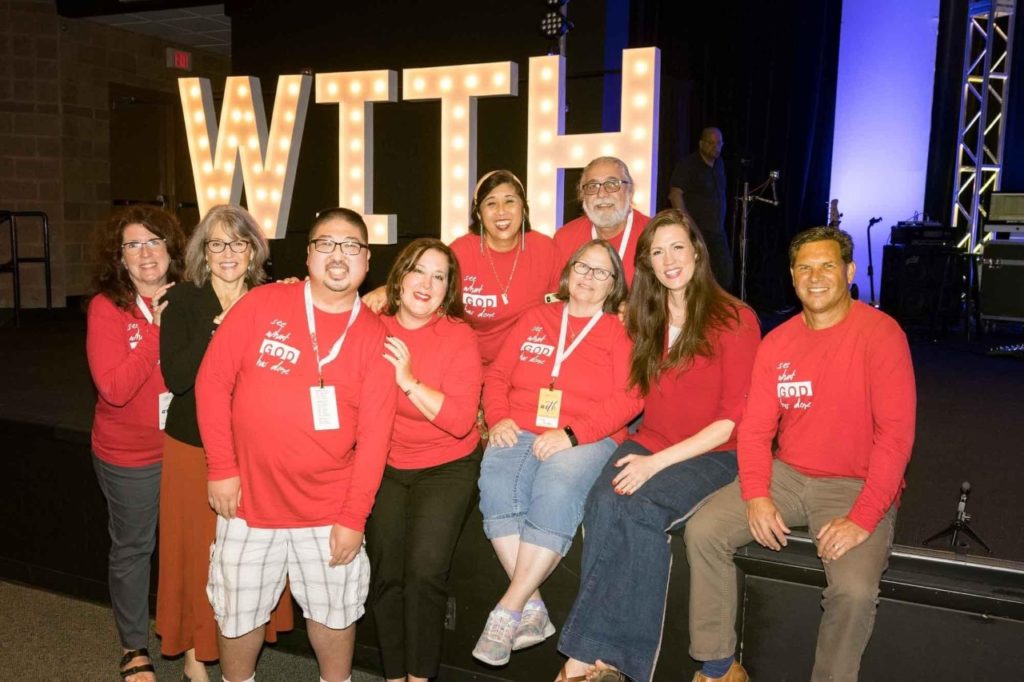
Credited: Ronnie Mosely
On May 24, 1999, Schneider traveled to Zambia, Africa to learn how he could help with the orphan crisis there. He would sit and listen to the needs of those who were vulnerable. He also asked the pastors and lay-leaders of the churches what they were doing to help with the orphans in their community.
The response Schneider would get was, “The orphans’ needs are so great, that we as a church have failed to meet them.” The Lord spoke to him and said, “Come alongside your brothers [and sisters] and help remove this shame they carry of not caring for the orphans.” The next two years, he would go and encourage these pastors and lay-leaders.
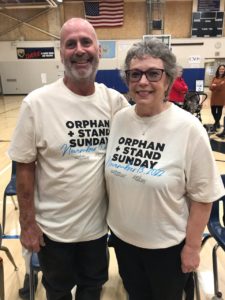
Credited: Jacob Sturges
One of the pastors, Billiance (Billie) Chondwe, from Kalingalinga, Zambia stepped up. Chondwe pastored a poor church and believed there should be a day where the needs of orphans are recognized.
Schneider was standing in the back of that church in 2002 and as he observed this first Orphan Sunday, he was moved by what he saw: the local church responding to the needs of the orphans in their community. A widow brought a cabbage and placed it in the offering plate up front and Chondwe cut it in half and gave them to two vulnerable families in that church service.
On his way back to the United States, the Lord spoke to Schneider saying, “Imagine the glory to my name, if my people will come together for one day, with one voice, for one purpose, Orphan Sunday.” He believed the Lord was using Orphan Sunday for (1) His glory, (2) the Church, and (3) for the orphan.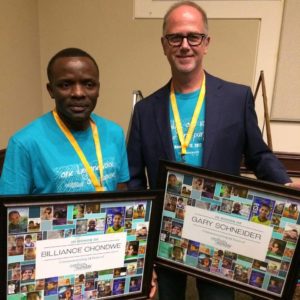
Credited: Ronnie Mosely
This message began to spread throughout Zambia over the next six years. More and more churches began to respond to love and care for the needs of orphans. In 2009, Schneider allowed the Christian Alliance for Orphans (CAFO) to help shepherd Orphan Sunday and in 2012 during the ten year anniversary of Orphan Sunday, some of the CAFO leadership team traveled to Zambia and handed out 1 million meals.
Orphan Sunday began to spread around the globe. “I, too, was an orphan without my parents and wanted to impact the lives of children and orphans,” said Chola Simwanza, who joined the global leadership in 2018 for Zambia. When asked how the Church could impact in loving and caring for orphaned and vulnerable children and families, Simwanza believes the Church should be the first to respond, since, “…they have different giftings and capabilities.”
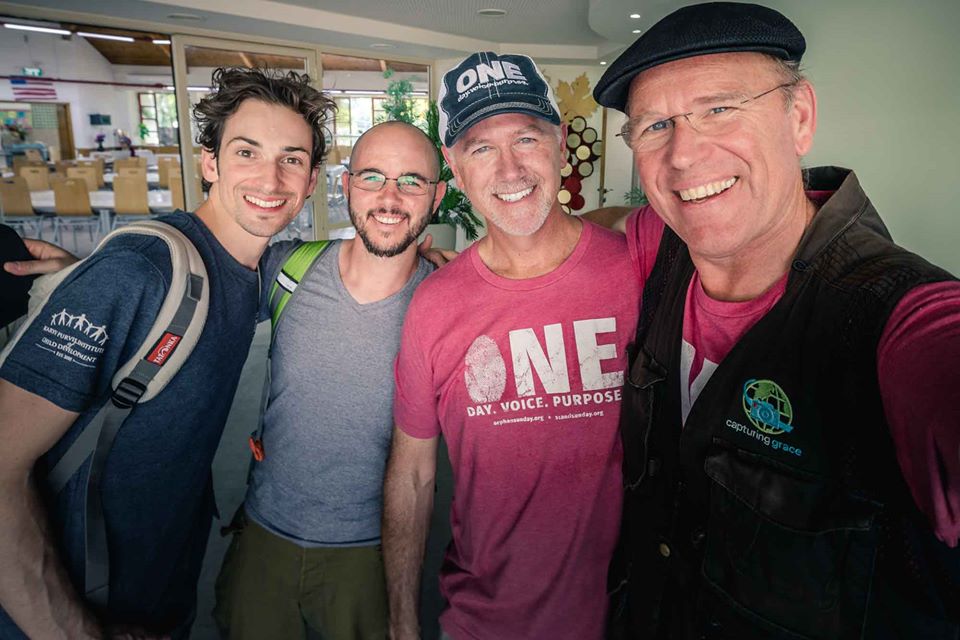
Credited: Ronnie Mosely
Worship and Creative Arts Pastor Tony Dunnick at Sioux City First (A/G) in Iowa shared their first Orphan Sunday from 2019. There was little response for foster and adoptive families, but, “…this brought awareness to the needs in our community and in Iowa,” shared Dunnick. He also believes it is possible for the Church to step up, beyond just giving financially. “The Church can step up to facilitate [and provide support] to foster families and their needs,” Dunnick said.
Chrystine Vilhauer, Evangel University and University of Minnesota alumni in social work and former Restoration Covenant Church children’s director, shared her experience of working with vulnerable children and families in crisis in Greene County, Missouri and Ramsey County and Dakota County, Minnesota. Vilhauer shared that families could find options for services, but they were limited. When asked if services are limited now during post-COVID, she said, “Yes, definitely.”
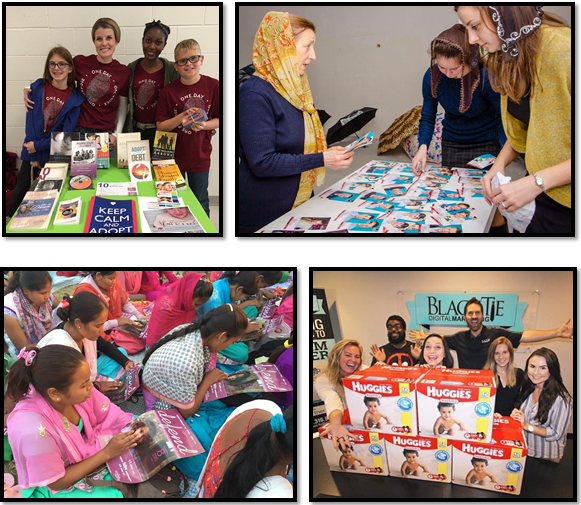
Credited: Christian Alliance for Orphans (CAFO)
Vilhauer also mentioned providers such as counselors and social workers as well as educators are overwhelmed. They are becoming burnt-out by the enormous needs that families are faced with today. “Their job is a thankless job, viewed by many of their clients,” she said. What she thinks can change for those who are burnt-out can be prevented by showing them some appreciation.
According to the U.S. Bureau of Labor Statistics, social workers made a median salary of $50,390 in 2021. The Minnesota Department of Human Services shared that social workers could make $21.48/hour, while a psychologist could make $41.40/hour. Vilhauer believes we need to provide support for our providers and educators.
Vilhauer believes Orphan Sunday can bring awareness of the crisis of vulnerable children and families to the local church. “Not everyone may be called to foster, but there are little things that the church can do,” she says. “Like providing respite [or wrap around services],” can make a lasting impact.
Canadian coordinator for Orphan Sunday, Brandalyn Musial, shares how God moved her to step out in faith and quit her dream job as a marine biologist. Musial went to Mission Fest in British Columbia, Canada, to figure out what she should do next with her life. Shortly after she was there, she heard Jedd Medefind from CAFO speak. She did not know anything about CAFO or Orphan Sunday at the time. This confirmed that she was letting the Lord direct her steps.
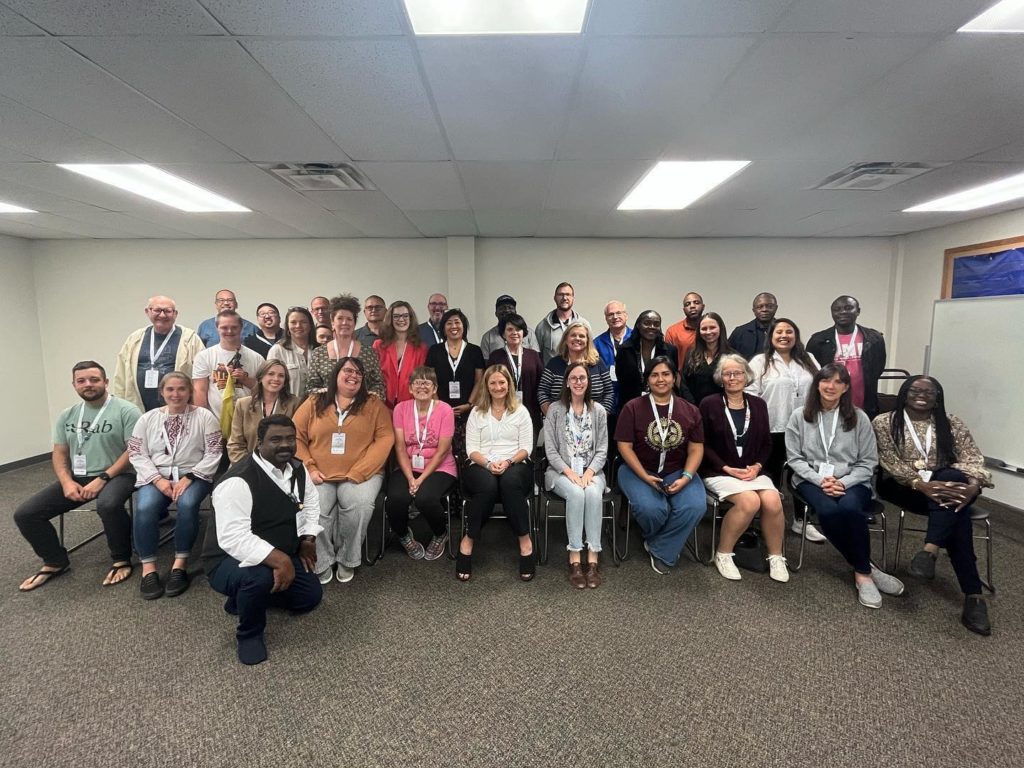
Credited: Kody Krady
Once Musial started to share about Orphan Sunday with churches, people would say, “Only special people can do foster care or adoption.” She would encourage them that they could learn about the needs of vulnerable children and families in their community and help meet those needs, just like she had done. When asked if the Church globally could make an impact in providing more than enough, Musial said, “I fully believe we can and we are called to.”
Musial also shared about Stand Sunday, the sister partner of Orphan Sunday. She mentioned Bishop Aaron Blake’s church in Texas that made an impact in their county. “It took one church to say, ‘yes,’” Musial said. She went on and shared that, “More families were waiting to foster and adopt than children needing to be fostered or adopted in that county.”
When asked how she would define the term orphan, Musial shared some history of the Indigenous children in Canada. “There is a stigma around this,” she said. “Children were removed from their families.” Musial went on, “When I think of the word orphan, it means that a child who does not have what God had intended for them when He created them.” Children are to have, “a family, protection, security, and love,” Musial shared.
Joel Marcaida serves as one of the directors for a Village of Hope facility through Compassionate Hope (Philippines) which serves children who have been affected by the sex-trafficking industry. Marcaida also serves as a coordinator there and international social media for Orphan Sunday. He shared that Orphan Sunday came to the Philippines nearly a decade ago and when it did, he and his wife, Noelle, became foster and adoptive parents by learning about Orphan Sunday.
When asked about how people can become involved in Orphan Sunday, “Some can go and visit an orphanage or residential facility,” Marciada shared. “Some can even pray for the children in their churches and communities.” He believes the local church and government agencies can work together to contribute what they can when it comes to orphaned and vulnerable children. “Orphan Sunday is a call for action…becoming the hands and feet of Jesus to love and care for orphans.”
So how can Orphan Sunday help encourage you? Orphan Sunday can be a catalyst for encouraging prayer for the nearly 147 million orphans worldwide. The power of prayer was part of the reason why Orphan Sunday started and spread to 121 countries around the globe these last twenty years.
Another way you could be part of Orphan Sunday is bringing it to your own churches and communities. They can begin to partner with their local social services and know the needs that need to be met. “We’re not all called to do the same thing, but we are all capable of doing something,” says Jason Johnson, National Director of Church Ministry with CAFO.
The last thing you can do is advocate. They can reach out to their state and federal government leaders to make sure policies are in place for the common good and well-being of children and families. They can speak for those who have no voice.
True and pure worship is to visit (or care for) the orphans and widows in their distress. We each have been given gifts, skills, talents, and abilities to change the world through Orphan Sunday.





